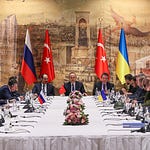Last month, forensic investigators found evidence of a mass grave containing the remains of as many as 215 children at Kamloops Residential Schools in Kamloops, British Columbia. The school, which operated from 1893 to 1978 under the aegis of the Catholic Church, was part of a larger policy of residential schools for Indigenous children. The residential schools were a colonial attempt to forcibly inculcate children in the culture of British and French settlers.
I spoke to historian Sarah Nickel, who has both professional and personal connections to the story of the Kamloops Residential School. She is an Associate Professor at the University of Alberta. Her scholarly research is on Indigenous activism in the 20th century. She is from the nation of Tk’emlúps te Secwépemc, and has family who attended Kamloops Residential School.
Sarah was a wonderful person to talk about the knotty issues of this story: not just the history of the residential schools but also the long story of Indigenous resistance, the role of the Catholic Church in running the schools and the refusal of the Vatican to apologize, the ways in which church and state try to deflect blame, the struggle to record this history, the destroyed records and still unavailable archives, and the crucial role played by Indigenous testimony working in helping to uncover graves spread all over Canada.
This is a grim topic but not a dispiriting conversation. Sarah rightly emphasized throughout the resilience and fighting spirit that has marked Indigenous resistance.
(Podcast produced by Julia Elinore Peterson; text edited by Emily M. Keeler)
Share and Subscribe
If you enjoyed this podcast, please share:
Or subscribe:














Share this post